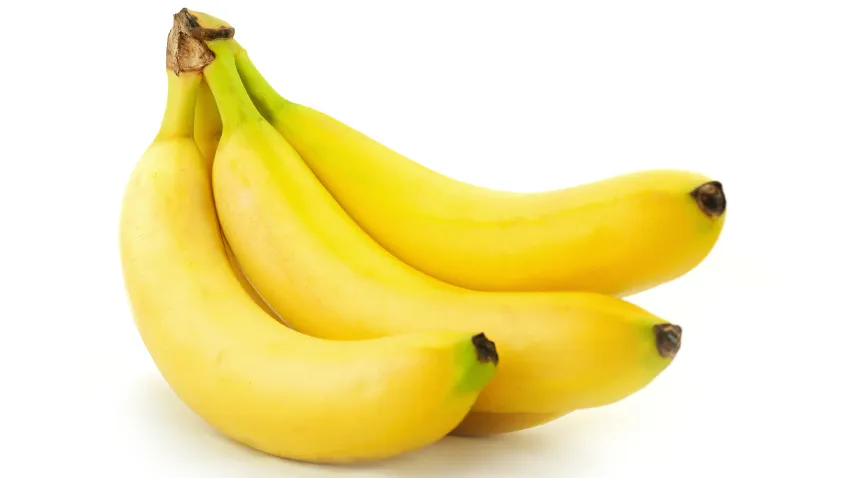Do bananas have protein? It’s a question that many people may have, and the answer is a surprising ‘yes’. Bananas contain a surprisingly high amount of protein, though in a different form than the typical animal sources one may be used to consuming. In this article, we’ll explore the topic in-depth and discuss what protein is, how much protein is found in bananas, the types of proteins, the benefits of consuming them, and how to get the most protein out of bananas in one’s diet. So if you’re curious about how bananas can be a part of a protein-rich diet, continue reading to learn more.
What Is Protein?
Protein is an essential macronutrient found in a variety of foods including meats, dairy products, legumes, nuts, and seeds. It is made up of long chains of amino acids that are vital for many functions in the body including cell growth and repair. Protein plays an important role in muscle development as well as helping to make hormones and enzymes necessary for energy production. When broken down during digestion it provides us with the building blocks we need to build muscles, bones, and other tissues.
Protein also serves as a source of fuel when carbohydrates or fats are not available due to insufficient calorie intake or periods without eating (fasting). It can help keep you feeling fuller longer by slowing digestion so that hunger pangs don’t set in right away after meals. Eating enough protein-rich foods each day helps ensure your body has enough energy throughout the day which can improve overall health and wellbeing
How Much Protein Is Found in Bananas?

Bananas are a nutrient-dense fruit, providing an abundance of vitamins and minerals. They also contain protein, which makes them a great snack for those seeking to boost their daily intake. A single banana contains about 1 gram of protein – that’s the equivalent of one large egg or two tablespoons of peanut butter!
This amount may not seem like much when compared with other foods such as chicken breast, but it is still significant considering its small size. Protein helps your body build and repair muscle tissue while also aiding in digestion and metabolism regulation. It also provides many essential amino acids needed for proper growth and development as well as healthy skin cells. By including bananas in your diet on a regular basis you can ensure that you get enough daily protein without needing to worry too much about the calories or fat content found in some meats or dairy products.
The Different Types of Proteins Found in Bananas.
Bananas are a nutritious source of many important nutrients, including protein. Protein is an essential building block for the body and helps build bones, muscles, and other tissues as well as producing hormones and enzymes. It is found in many different forms within plants such as bananas.
Bananas contain three main types of proteins: structural proteins, storage proteins, and functional/regulatory proteins. Structural proteins form the cell wall structure necessary for growth; storage proteins act like energy reserves that can be used when needed; while functional/regulatory proteins help to regulate metabolic activity within cells by controlling gene expression or binding to specific molecules inside cells to activate them into performing certain functions. All these roles combined to ensure the proper functioning of our bodies systems — from digestion to growth — making it very important that we get enough protein-rich foods such as bananas in our diets!
The Benefits of Consuming Proteins from Bananas.
Consuming proteins from bananas provides numerous health benefits. Bananas are a rich source of essential amino acids, which help the body build muscle and maintain metabolic processes. They also contain potassium, an electrolyte mineral that helps regulate fluids in the body and reduce high blood pressure.
Protein from bananas is easily absorbed by the digestive system and can provide a sustained energy boost for athletes or those engaging in strenuous physical activity due to its slow release of energy into cells throughout the day. Additionally, consuming protein-rich foods such as bananas may ward off hunger cravings while providing essential vitamins needed for overall well-being including Vitamin B6 which aids with hormone production, nerve function, and metabolism regulation; vitamin C which builds collagen to keep skin healthy; magnesium which assists muscles during exercise; folate necessary for DNA repair; choline important for memory formation;and dietary fiber that keeps your intestines functioning properly
In summary, consuming proteins from bananas is an effective way to improve overall health while enjoying one of nature’s most nutritious fruits at any time!
Tips to Get the Most Protein Out of Bananas in a Diet
Bananas are a great source of protein and can help provide your body with the essential nutrients it needs. Eating bananas as part of a balanced diet is an excellent way to get the most out of this fruit. Here are some tips to ensure you’re getting the most protein out of every banana:
1) Choose ripe bananas – Choosing ripe or slightly overripe bananas will give you more nutrition from each one than green, under-ripe ones. The yellow skins should have brown spots on them indicating that they’ve ripened enough for optimal nutrition levels.
2) Opt for organic – Organic fruits contain higher concentrations of vitamins and minerals, so choosing organic varieties when possible can boost your nutritional intake from each banana significantly.

3) Eat them in combination with other foods – Bananas go well with many different types of food such as oats, nuts, and seeds which all add extra proteins to your diet when combined together properly. This ensures that you not only get more protein but also create meals that keep hunger at bay longer!
Our Final Thoughts
We’ve seen that bananas do contain proteins, although in smaller quantities than other foods. For those looking to add more protein to their diets, bananas are a great option and can be easily integrated into most meals or snacks. Eating more bananas is also beneficial for overall health as it provides essential vitamins and minerals. To discover even more about how you benefit from boosting your protein intake with banana consumption, make sure to join our newsletter!








